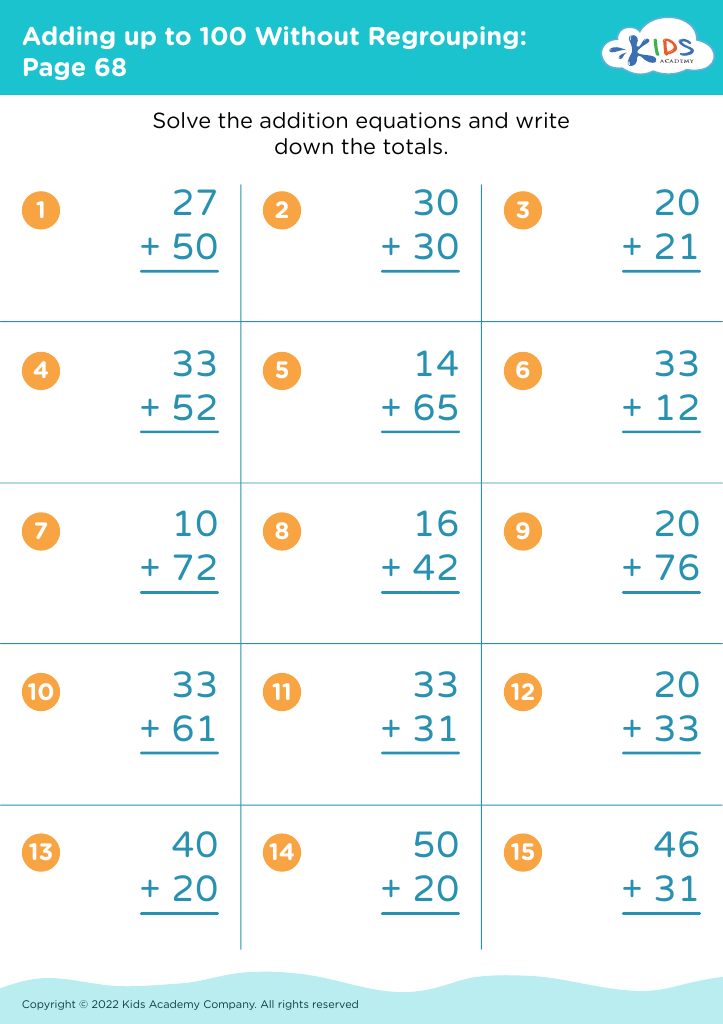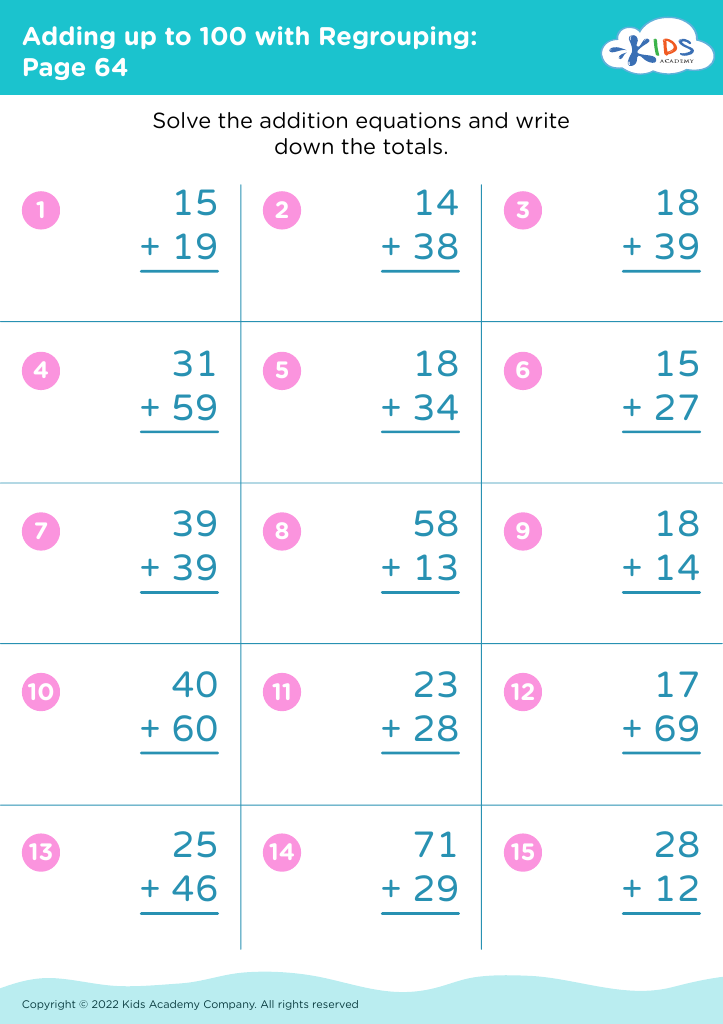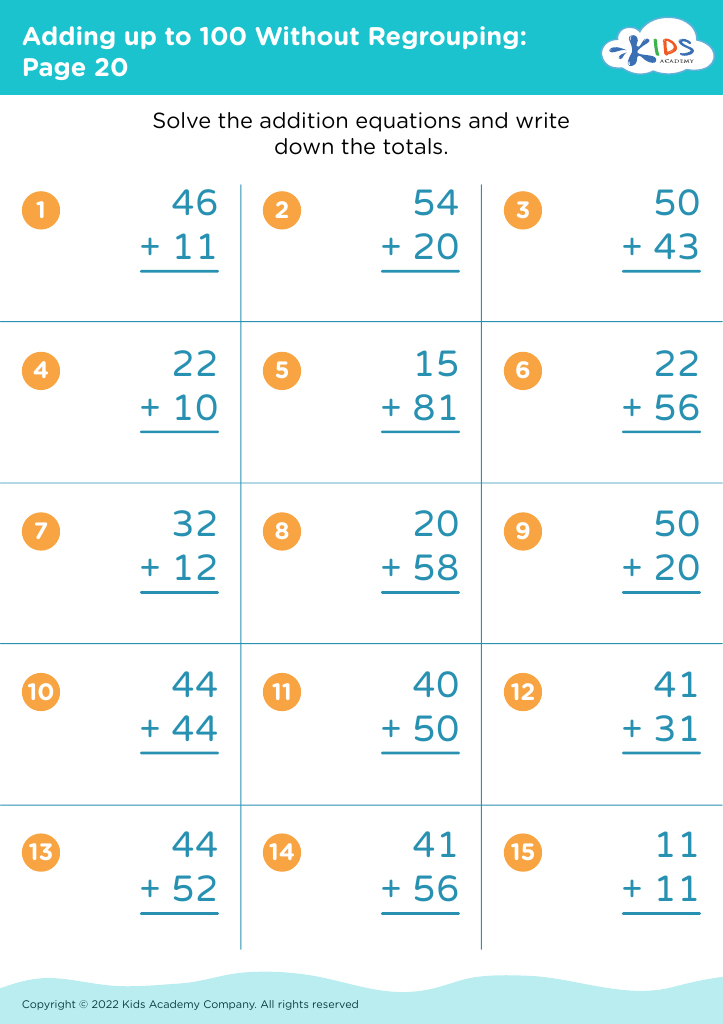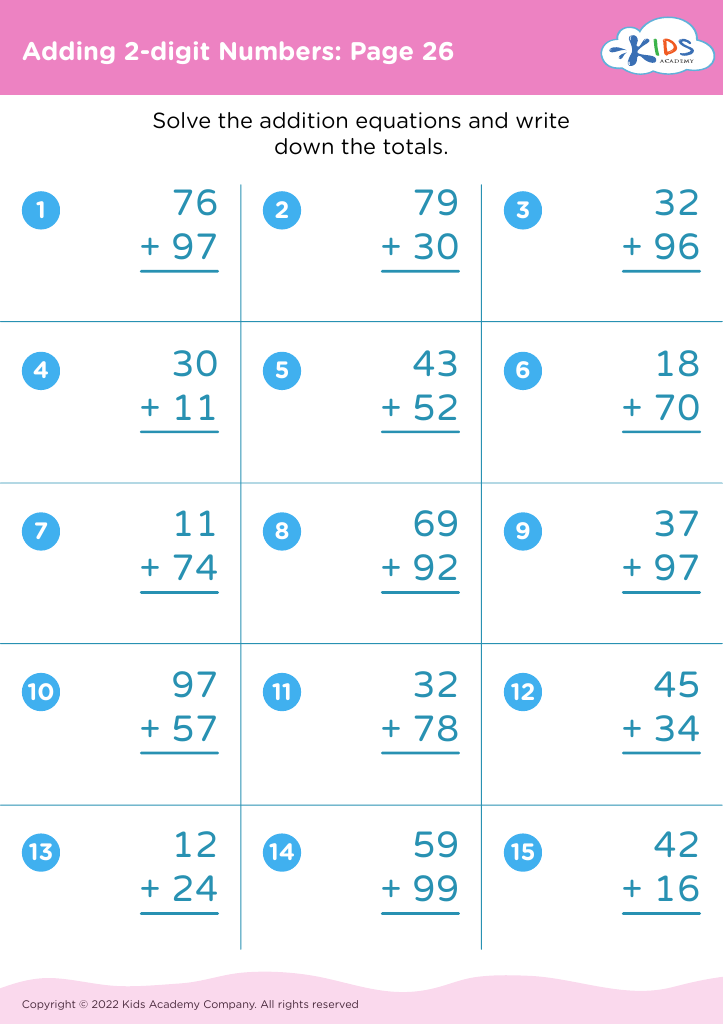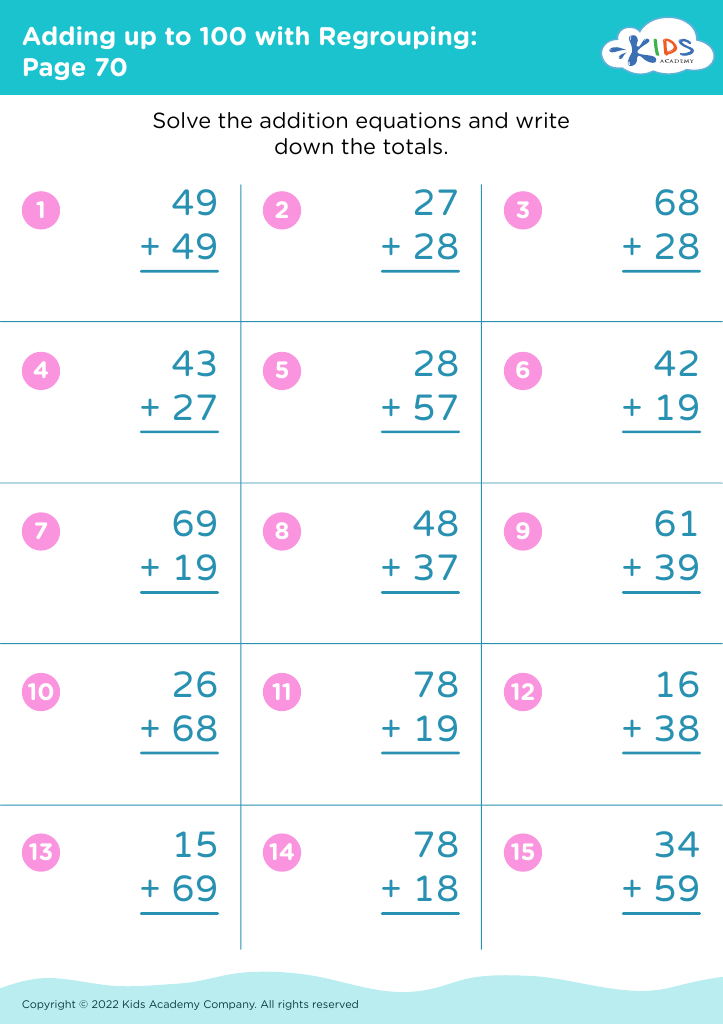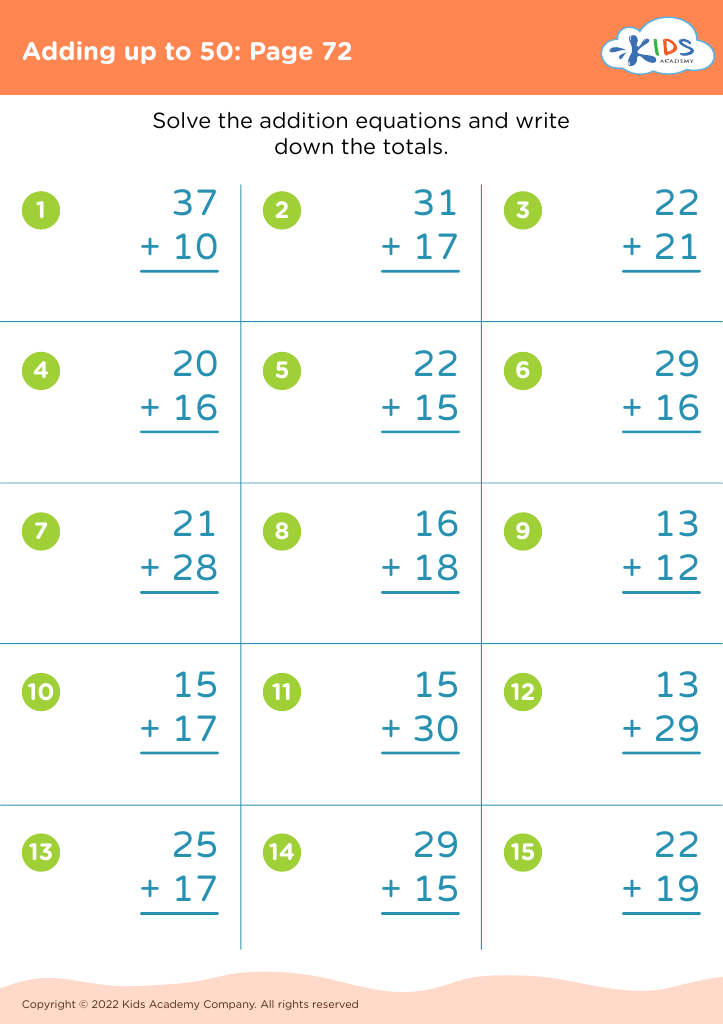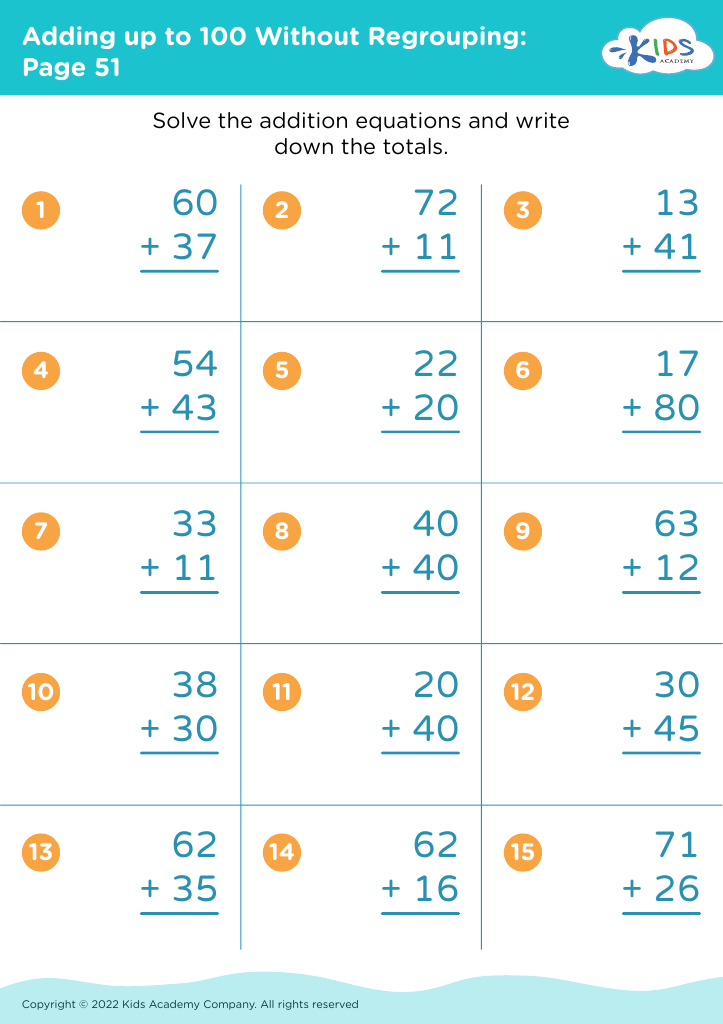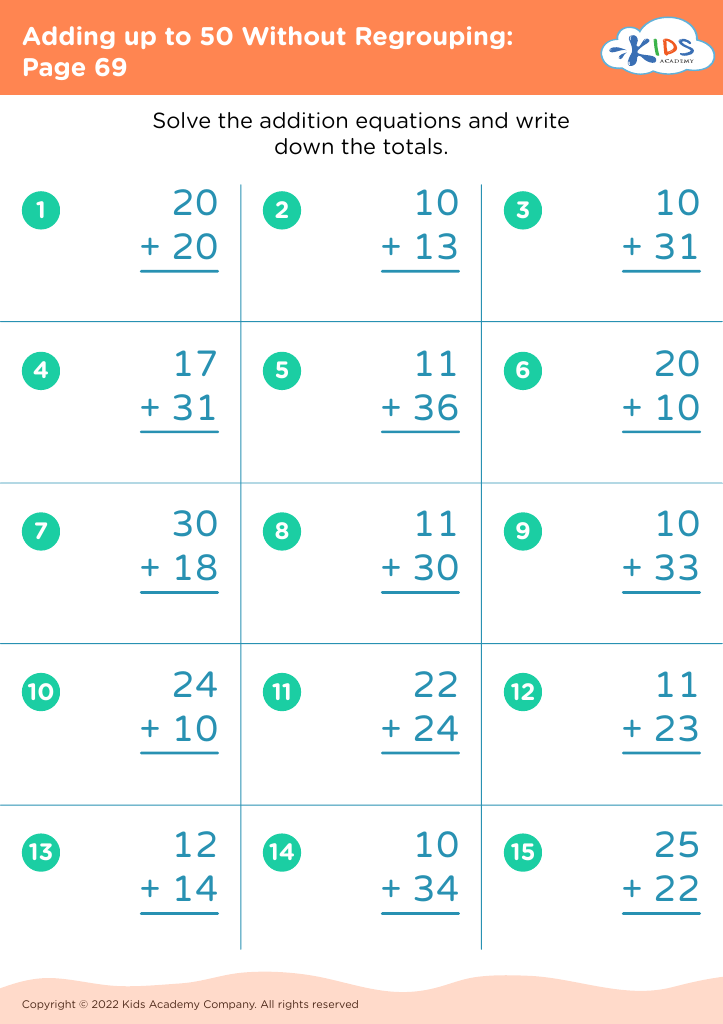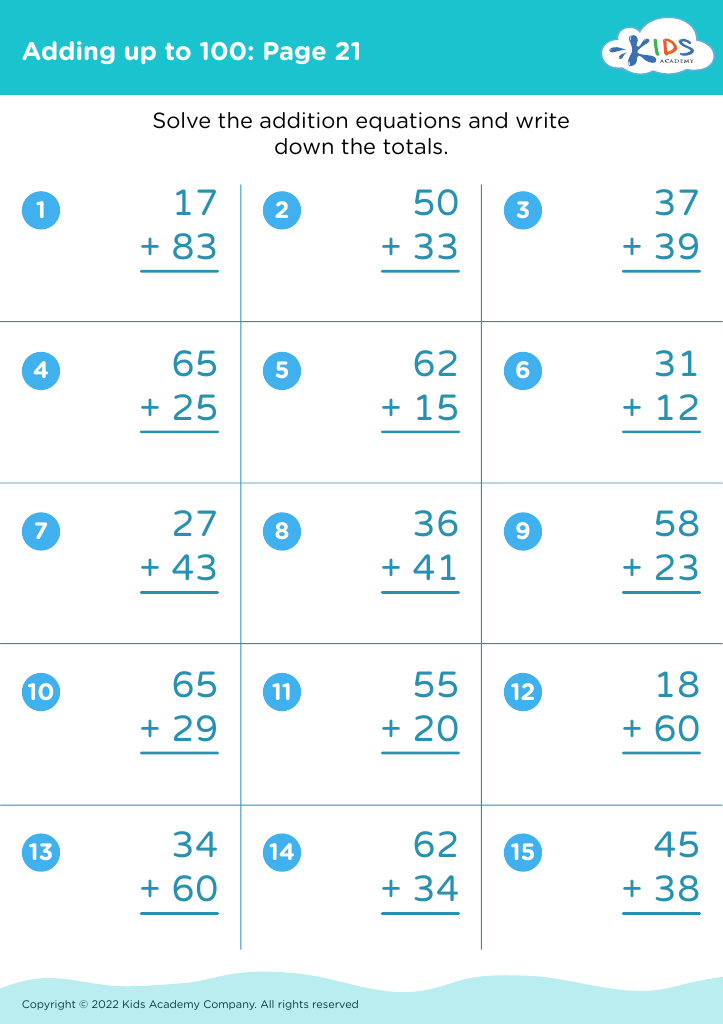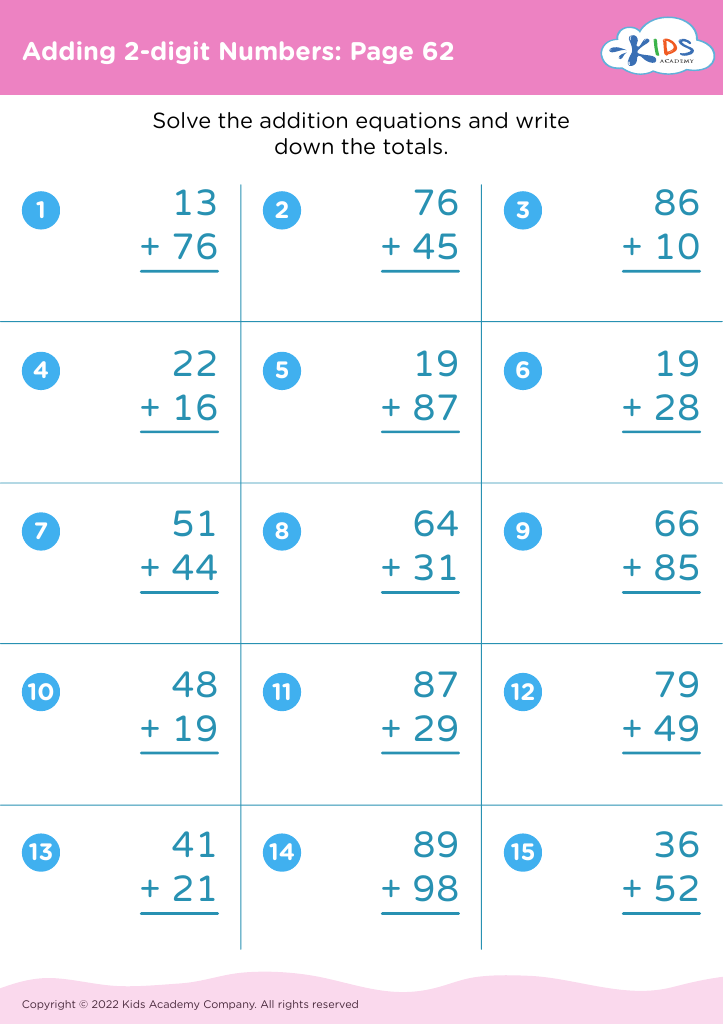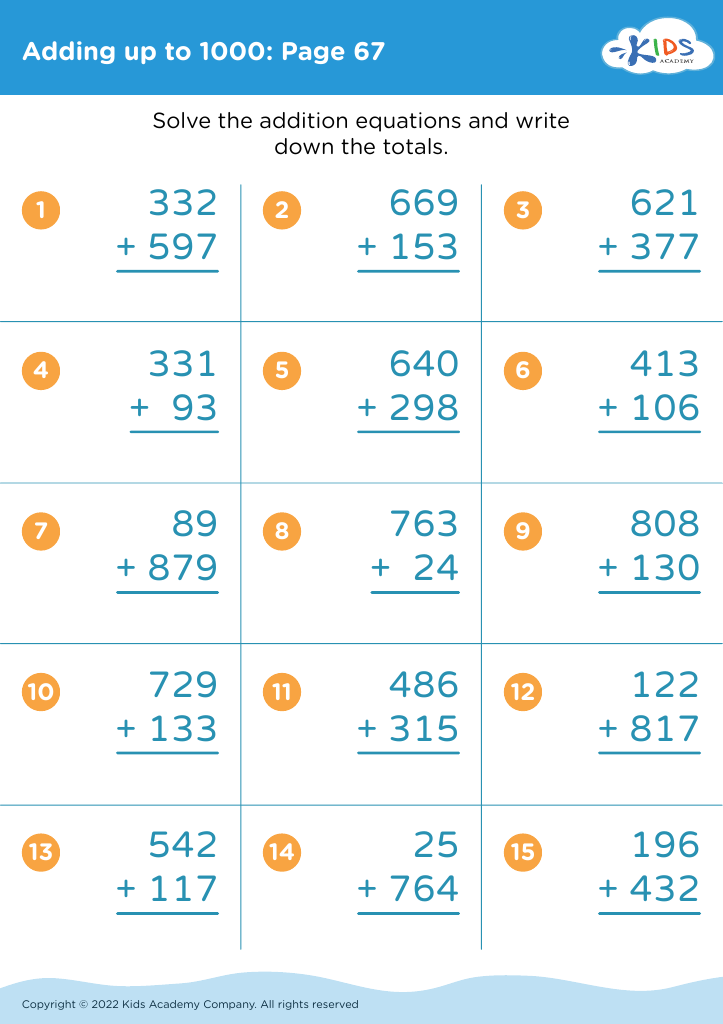Understanding multiplication Addition & Subtraction Worksheets for Ages 4-9
24 filtered results
-
From - To
Discover a fun and effective way to strengthen your child's math skills with our "Understanding Multiplication, Addition & Subtraction Worksheets" designed for ages 4-9. Our engaging resources offer a variety of activities that help young learners grasp essential math concepts in a playful manner. Each worksheet promotes foundational arithmetic abilities, enabling children to connect multiplication with addition and subtraction. Tailored for different learning styles, these worksheets foster confidence and insight, making math enjoyable. Get your child ready for academic success and a lifelong love for numbers by exploring our dynamic collection today! Start nurturing their mathematical journey now!
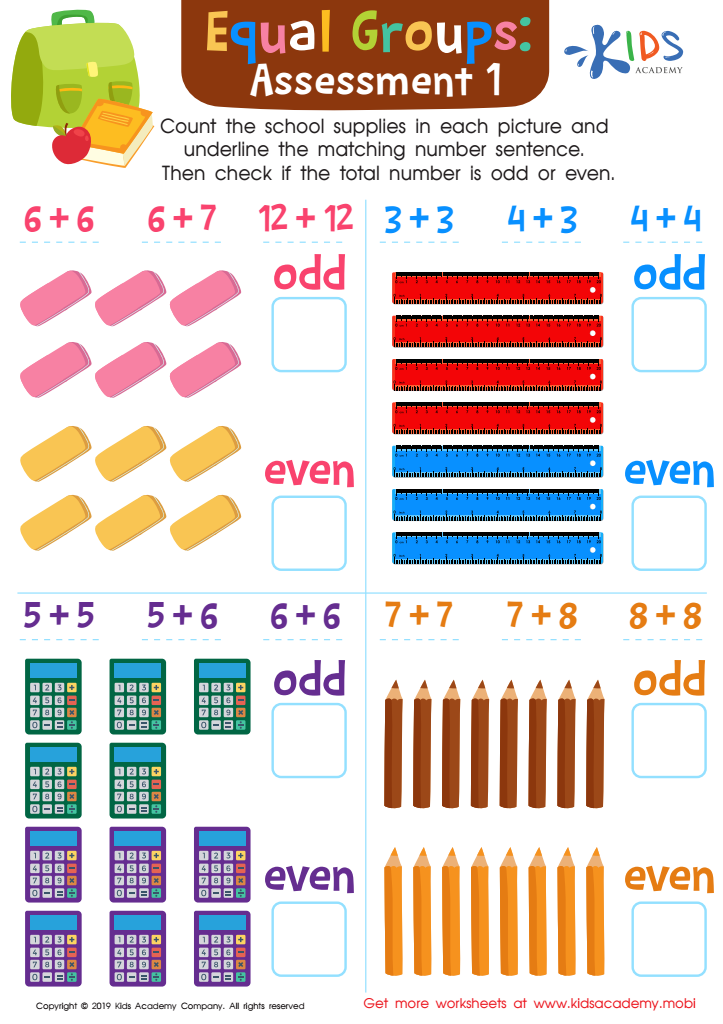

Equal Groups: Assessment 1 Worksheet
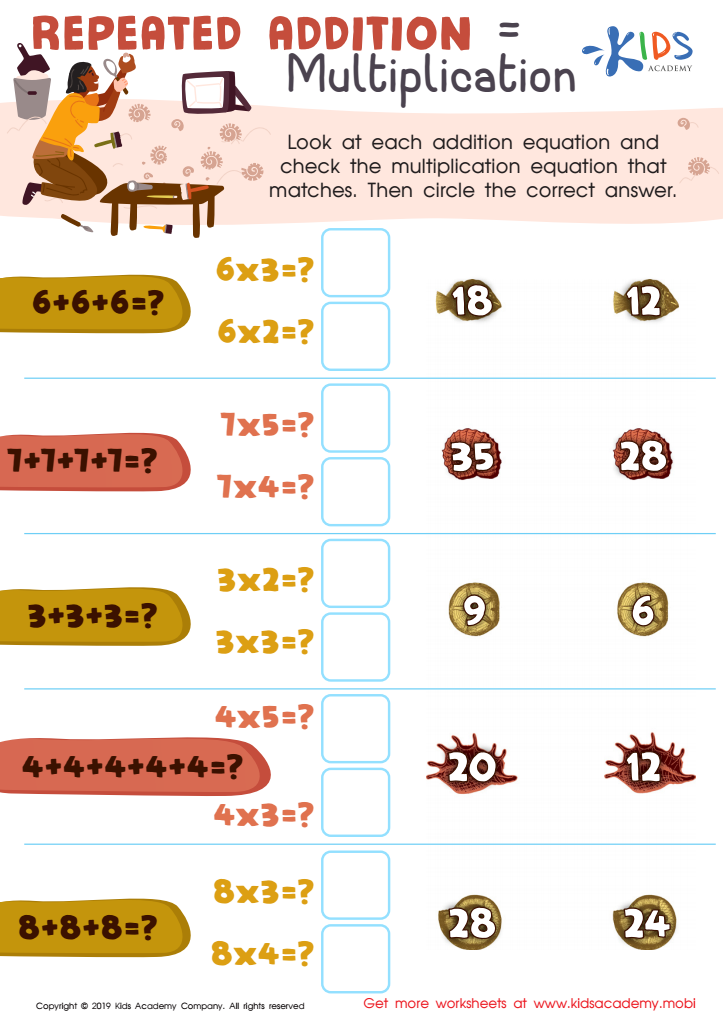

Repeated Addition = Multiplication Worksheet
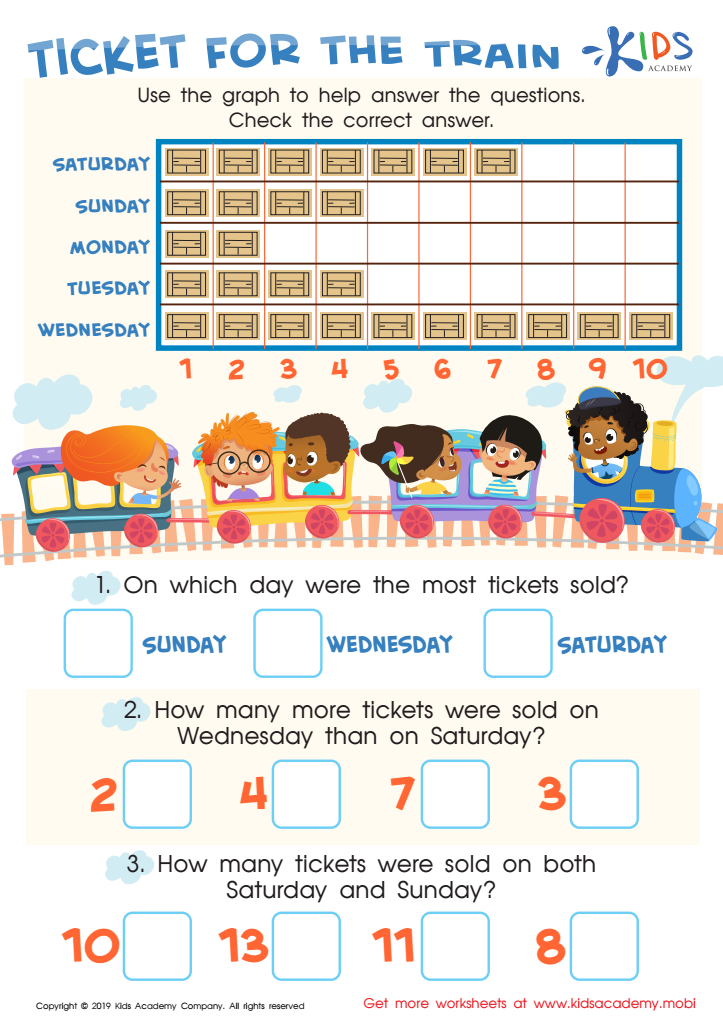

Ticket for the Train Worksheet
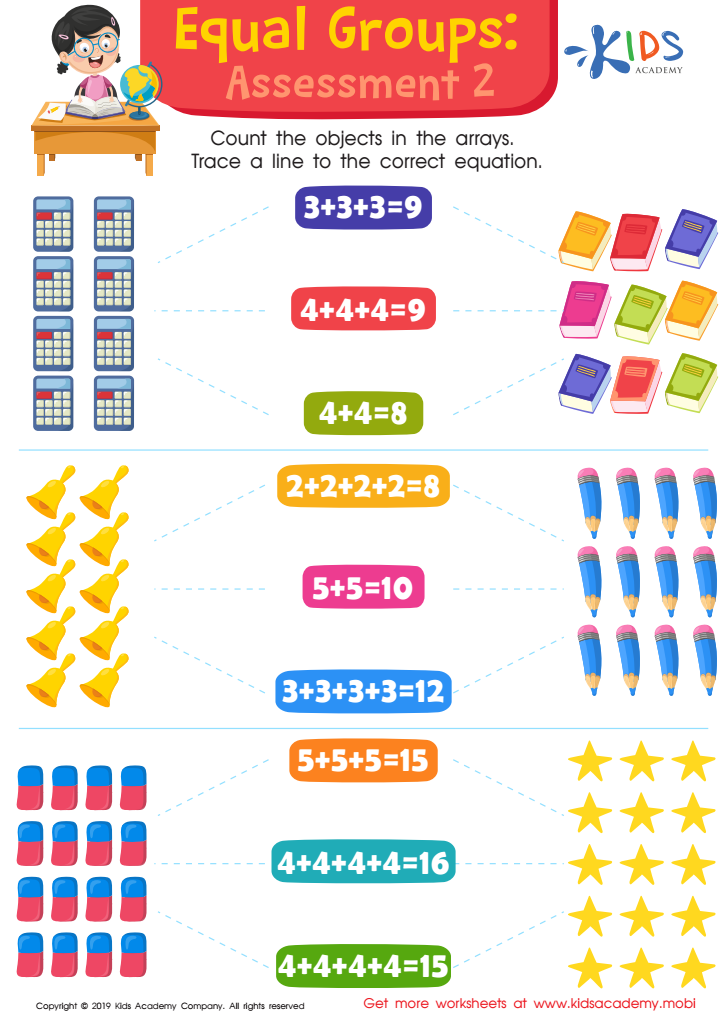

Equal Groups: Assessment 2 Worksheet
Understanding multiplication, addition, and subtraction is crucial for children aged 4-9, as these foundational skills are essential for their overall cognitive development and future academic success. During these formative years, children build the building blocks of mathematical literacy, learning how numbers interact and relate to one another. A firm grasp of addition and subtraction provides the groundwork for understanding the more complex concept of multiplication, which essentially combines repeated addition.
By encouraging children to master these basic operations, parents and teachers help them develop problem-solving skills and logical reasoning, both vital in daily life and future learning. Engaging children in mathematical concepts at an early age fosters confidence, enabling them to tackle more challenging math topics as they grow.
Moreover, math literacy directly impacts overall academic performance. Students proficient in these skills often excel not only in math but across subjects requiring analytical thinking. Engaging in fun and interactive math activities can greatly enhance a child's attitude towards mathematics, making learning enjoyable and impactful.
Ultimately, a solid understanding of addition, subtraction, and multiplication empowers children, setting them on a path toward successful mathematics proficiency and lifelong learning. This investment in early education creates a strong foundation for their future endeavors.


 Assign to My Students
Assign to My Students
